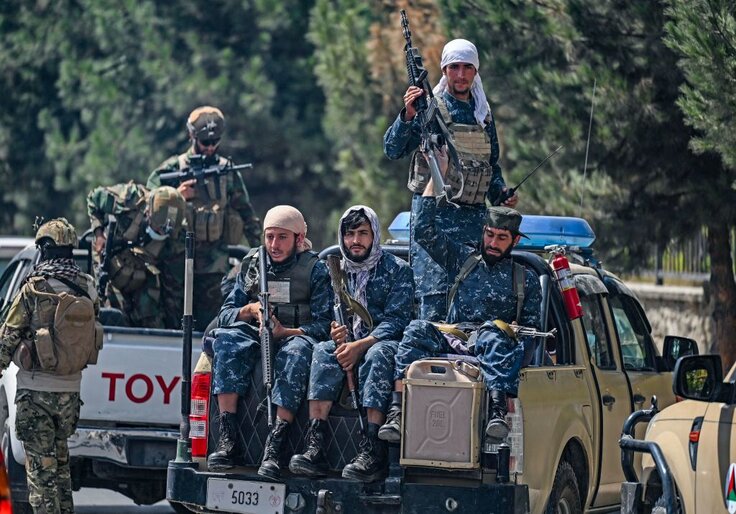Less than two years after the Biden administration’s withdrawal from Afghanistan, the country "is once again a terrorist safe haven" with groups capable of orchestrating attacks on the American homeland, according to former defense and counterterrorism officials.
Under the Taliban’s rule, terrorist groups like al Qaeda and ISIS-K have rebuilt their forces, acquiring the operational capacity to launch strikes across Europe and the United States in as little as six months from now, the former officials told Congress during a Tuesday hearing on repercussions of the Biden administration’s 2021 withdrawal from Afghanistan. As the war-torn country breeds new terrorists at an accelerated rate, there is a growing fear in the U.S. defense community that a major attack in the United States is on the horizon.
"The threat environment in Afghanistan is bad and getting worse," said Nathan Sales, a former coordinator for counterterrorism at the State Department who said the U.S. military has been unable to effectively collect intelligence about terror plots since its withdrawal. "With no presence on the ground, it’s much harder to monitor terrorist groups as they train and plot."
The former officials also raised concerns about the $7.2 billion worth of American military equipment that was abandoned in Afghanistan. Not only could this equipment fall into the hands of multiple terrorist groups, but it could be intercepted by adversaries like Russia and China, which are still active in Afghanistan and maintain ties with the Taliban.
The Biden administration, on the other hand, has mostly forgotten about the country. Even as terrorist forces amass in Afghanistan, the United States has conducted just one drone strike in the 20 months since it left the country. "One drone strike in 20 months is not a viable strategy," Sales said.
The lack of intelligence from Afghanistan has also impacted the Department of Homeland Security’s travel and vetting system, which was created in the wake of the 9/11 terrorist attacks. Without a steady flow of information from Afghanistan, these networks are breaking down, Sales said, pointing to a spike in the number of watch-listed individuals caught at the nation’s porous southern border. Nearly 100 individuals on the terrorism watchlist were caught at the border in 2022 and another 69 have been apprehended so far this year.
"When terrorists have safe haven, as they now do in Afghanistan, they’re able to plot attacks far beyond their borders, including their ultimate goal of hitting the U.S. homeland," Sales said.
Simone Ledeen, former deputy assistant secretary of defense for the Middle East, raised concerns about the Biden administration’s decision to airlift Afghan citizens into America without proper screening or credentials. The disorganized effort allowed at least 324 Afghans to enter the United States who were on the Pentagon's watchlist, according to Ledeen.
Leaked emails provided to Congress in 2021 appear to corroborate this information, indicating the Biden administration allowed unvetted refugees to fill flights out of the country.
Retired Col. Christopher Douglas, a Marine Corps veteran conducting the investigation into the terrorist bombing at the Kabul airport that killed 13 U.S. service members, said he was shocked when the Biden administration announced the hasty withdrawal. He blamed the lack of notice from the administration for the botched evacuation, as well as the current situation in Afghanistan.
"I and presumably many of our Afghan partners were in disbelief by the announcement of the withdrawal date," Douglas said. "This reduced our U.S. force posture and boots on the ground to nearly zero," exacerbating an already tense effort to get Americans out of the country.
